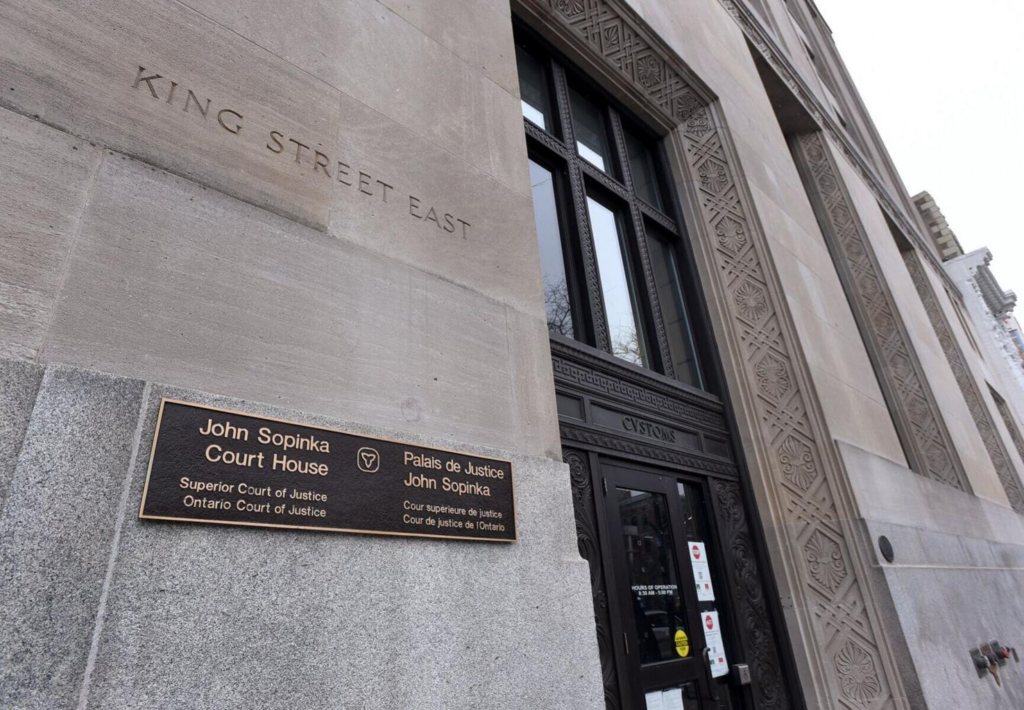February 26, 2024 VIA EMAIL: premier@ontario.ca The Honourable Doug Ford, M.P.P. Premier of Ontario Legislative Building, Queen’s Park Toronto, Ontario, M7A 1A1 The Criminal Lawyers’ Association represents more than 1800 criminal lawyers in the province of Ontario. Our membership regularly appears in the Ontario Court of Justice where the bulk of criminal law cases are heard in this province. The Judicial Appointments Advisory Committee (JAAC) had long been lauded as the gold standard in judicial appointments. The JAAC created significant independence in the appointment process of judges in our province. This committee historically focused on appointing judges for merit and not political allegiance. Your recent comments in the media confirmed your Government’s intentions to politicize the process. The Government’s interference with the judicial appointment process poses a substantial threat to the independence of Ontario’s judges. The loss of independence erodes public confidence in the judiciary. Your ill-conceived public comments about appointing “like-minded” judges will have the unintended effect of tarnishing the integrity of your future appointments. Judicial independence is a cornerstone of our constitutional democracy. We echo the concerns of other Ontario legal organizations and urge your Government to appoint qualified, principled, impartial judges of the highest caliber regardless of political affiliation. Judges must be free to make fair and impartial decisions – often difficult decisions – without concern for whether or not their rulings align with the Government of the day. Yours very truly, Boris Bytensky President, Criminal Lawyers’ Association CC: The Honourable Doug Downey, K.C., M.P.P., Attorney General of Ontario
Doug Ford’s politicization of the judicial system. We had an excellent system of judicial appointments based on merit until Ford decided that he’s going to appoint his friends and political cronies, just like he’s already done with Justices of the Peace. Are judicial positions now open for bidding?
IF YOU READ MY POSTS YOU KNOW I’M NO FAN OF DOUG FORD. – Here is one reason why.
THAT’S A LOT OF CANADIANS WITH CRIMINAL RECORDS – Having a criminal record should not be an automatic barrier to employment. Pardons (or record suspensions) should be readily available to those who have earned it.
WHEN JUDGES CRITICIZE POLICE (#2) – Justice Tetley severely criticizes police for a lack of investigation in a sexual assault case. – “This judgment serves as a cautionary example as to the fact an injustice can occur when appropriate and available investigative steps are not pursued and a criminal prosecution instituted on what is now concluded to be an uncorroborated complaint of criminal misconduct of dubious reliability.”
https://gaggle.email/attachments/ag1zfmdhZ2dsZS1tYWlscigLEgRMaXN0GICAwJXj2KcJDAsSCkF0dGFjaG1lbnQYgIDQtf2cnQsM/R%20v.%20JANSEN%20Ashley%20-%20Written%20Reasons%20for%20Judgment%20(VF)%20-%2021Dec2023.pdf







